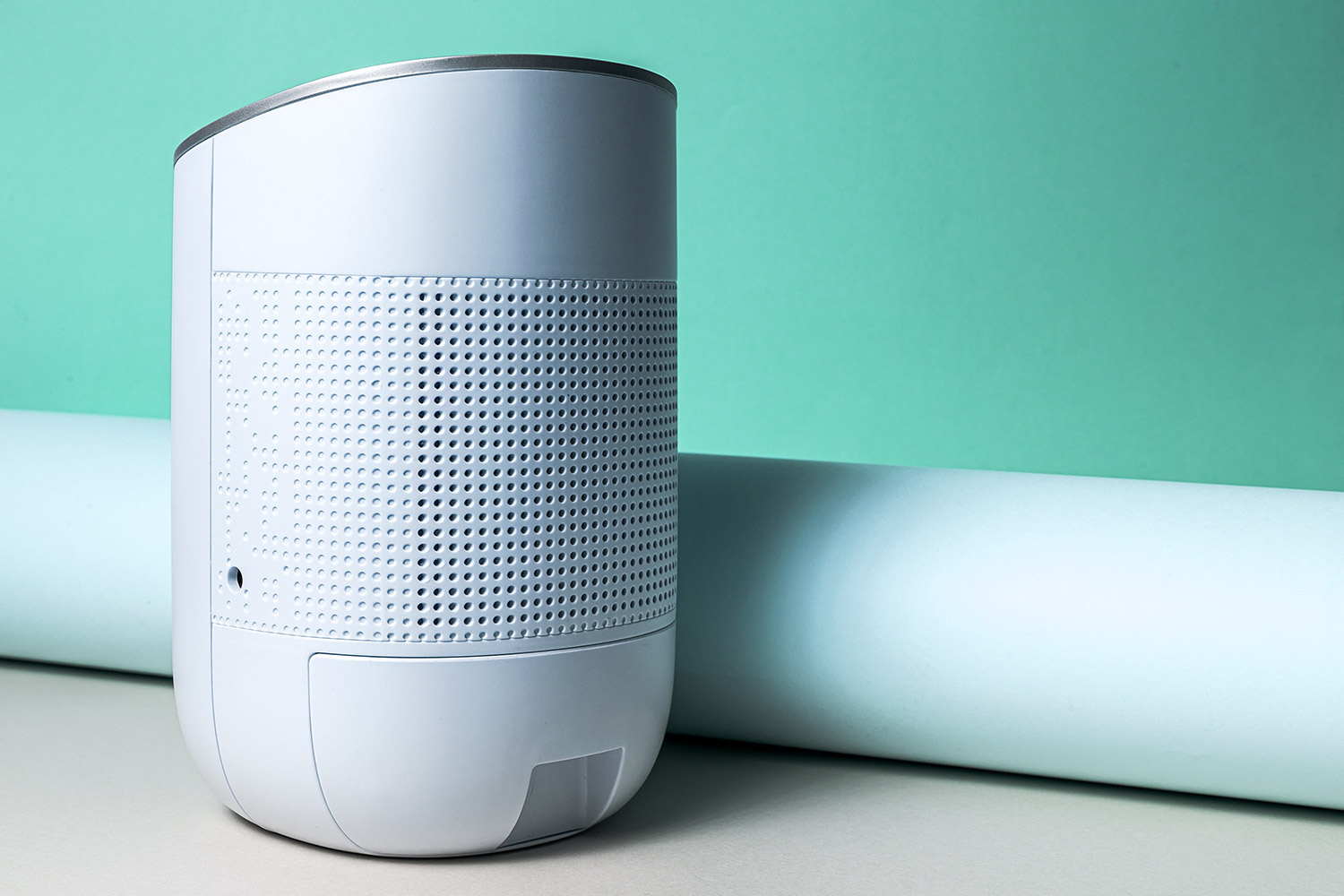Table of contents
Moisture can cause problems in a home, including mold, rust and unpleasant odors. A dehumidifier is a device designed to help control the humidity in your home. But how do you choose the right dehumidifier for your home? In this article, we’ll go over five key factors to consider when choosing a dehumidifier.

Photo : (c) Shutterstock
1. Room size
The first thing to consider when choosing a dehumidifier is the size of the room you want to dehumidify. Dehumidifiers have different capacities, measured in pints of water per day, which is the amount of water they can extract from the air in a day. For small rooms, a 30- to 40-quart-per-day dehumidifier should be sufficient. For larger rooms, a dehumidifier of 50 pints or more would be necessary.
The number of dehumidifiers needed depends on the size of your home and the amount of moisture you have in each room. In general, you don’t need a dehumidifier in every room of your home, but it depends on the layout of your home and which areas are most affected by moisture.
If you have moisture problems in only one room of your home, it may be sufficient to use a dehumidifier in that specific room. However, if moisture is present in multiple rooms or throughout your home, it may be necessary to use multiple dehumidifiers to regulate the humidity effectively.
2. The level of humidity
The second factor to consider is the humidity level in your home. If your home is very humid, a more powerful dehumidifier will be needed to maintain the desired humidity level. Dehumidifiers have different humidity thresholds, which can be adjusted to meet your needs.
If you have a very high humidity level, you may need to opt for a dehumidifier with a lower humidity threshold. For example in Vegas where I live, the humidity level is very low, so consider the area you live in to evaluate whether or not you need to purchase a dehumidifier.
3. Noise
Noise is another important factor to consider when choosing a dehumidifier. Some models can be very loud, which can be annoying if you plan to use it in a room where you spend a lot of time.
Dehumidifiers without a compressor, called absorption dehumidifiers, are generally quieter than dehumidifiers with a compressor. Be sure to check the decibel (dB) levels to make sure the dehumidifier won’t be too loud for your home.
4. The cost of the dehumidifier
Cost is an important factor to consider when purchasing a dehumidifier. Prices vary depending on the size, brand and features. Larger, more powerful dehumidifiers are generally more expensive than smaller models. It is important to define your budget before you start looking for a dehumidifier to avoid overspending.
5. Additional features
Finally, it’s important to consider the extra features you might want in your dehumidifier. Some models may have air filters to improve the air quality in your home, while others may have more advanced humidity control features, such as digital displays or remote controls.
Are there any risks to using a dehumidifier?
While dehumidifiers are useful for reducing humidity in your home, they can pose some potential risks. Here are some of the most common risks associated with using a dehumidifier:
- Fire Hazard: Dehumidifiers use electrical components to operate, which can increase the risk of fire. To avoid this risk, it is important not to overload electrical outlets or leave the dehumidifier on for long periods of time without supervision.
- Risk of water leakage: Dehumidifiers collect water in a tank or tray that must be emptied regularly. If the tank is not emptied on time, it can overflow and cause damage to your home. Some dehumidifiers have an automatic shut-off feature that turns off the water supply when the tank is full to prevent leaks.
- Mold Risk: Although dehumidifiers are designed to remove moisture, if not maintained regularly, they can actually create an environment for mold growth. Pans and filters should be cleaned regularly to prevent moisture build-up and mold growth.
- Health Risk: If a dehumidifier is not maintained regularly, it can become a home for bacteria and mold that can affect indoor air quality. This can cause health problems such as allergies, respiratory problems and infections.
- Energy cost: Dehumidifiers use energy to operate, which can increase your home’s energy costs. Larger, more powerful models typically use more energy than smaller models, so it’s important to choose a model that fits your dehumidification needs to avoid high energy costs.
